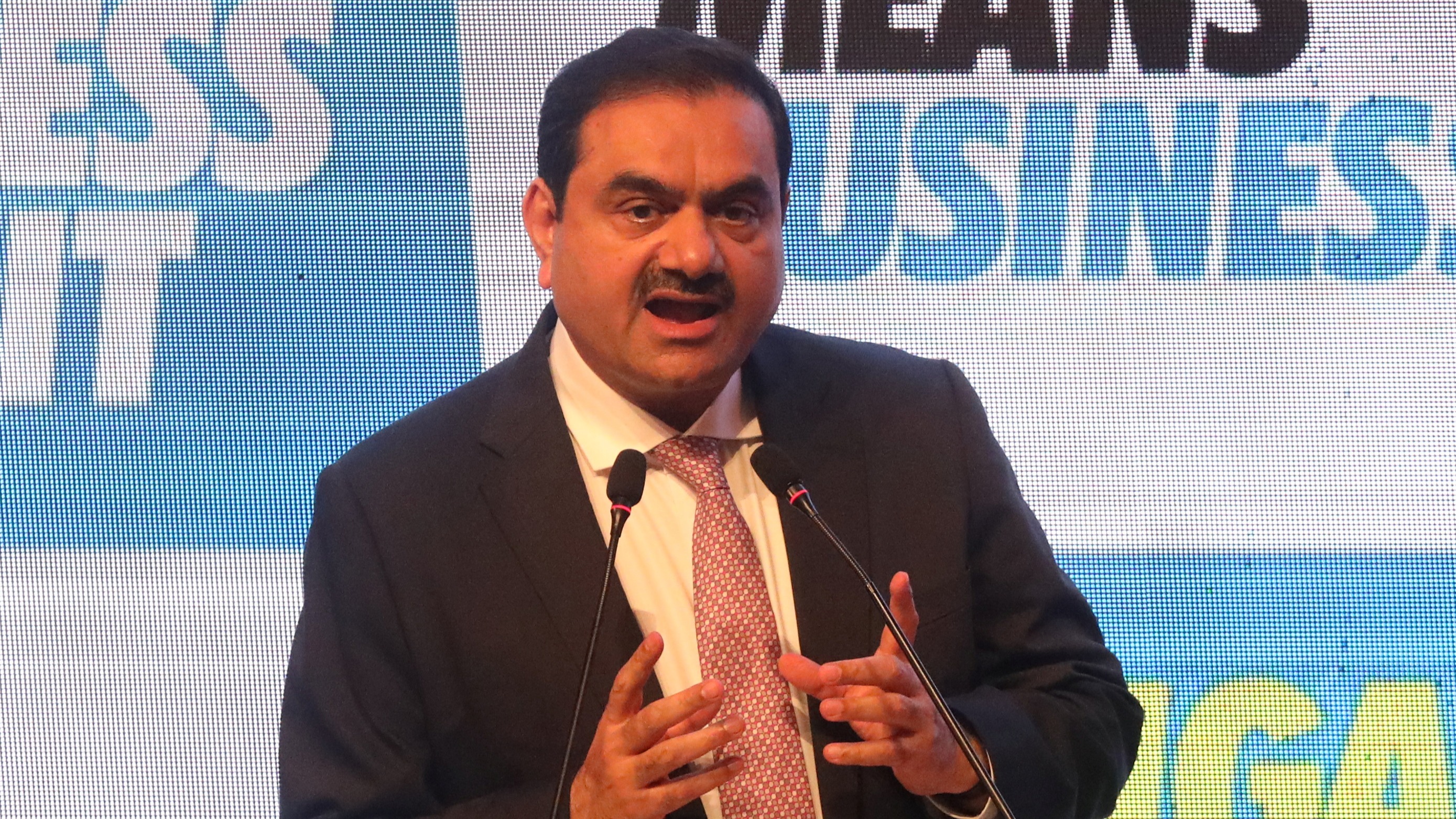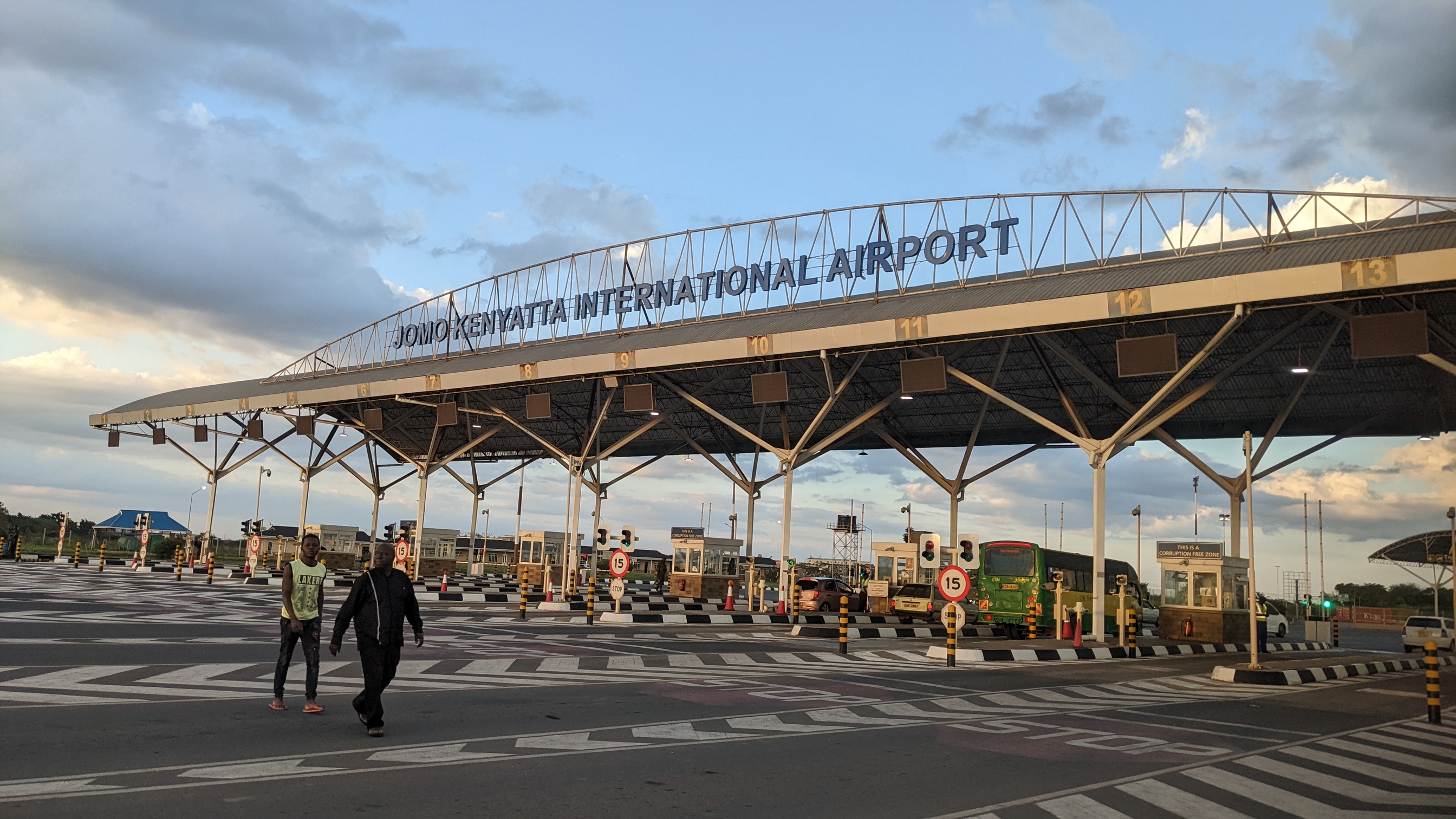Powerful Indian tycoon faces backlash in Kenya
Court halts a US$1.85bn airport lease deal and a US$736m power transmission line contract with Adani
 Photo source: Nikkei Asia
Photo source: Nikkei Asia
An Indian billionaire who is widely perceived to be close to Prime Minister Narendra Modi has suffered a unprecedented setback as two of his unsolicited infrastructure proposals - a 30-year operational lease of the Jomo Kenyatta International Airport (JKIA) in exchange for a US$1.85bn upgrade and a US$736m deal to build and operate a high-voltage transmission line for 30 years - have been blocked by the court in Nairobi. The decisions come in response to a case filed by the Kenya Human Rights Commission and the Law Society of Kenya arguing that the proposals were shrouded in secrecy and were not in public interest.
The first proposal to come under legal scrutiny was the upgrade and expansion of JKIA. It drew a sharp criticism from a coalition of airport workers unions, journalists, and rights activities as soon as it came. They argued that the proposed deal risks job losses, presents a fiscal burden, and fails to deliver value for taxpayers.
Under the terms of proposal, the Adani Airports Holdings, which manages seven airports in India, would build a new passenger terminal, a second runway, and refurbish existing facilities in exchange for a 30-year lease that would allow the firm to operate the airport. After the lease term, Adani would acquire a 18% equity stake in the airport. The proposal also sought tax exemptions and other concessions.
The news of the proposal, leaked to the public by a whistleblower, triggered an airport workers strike and met with strong opposition from lawmakers. They accused the government of complicity and demanded competitive bidding. Concerns have also been raised about Adani Group’s potential access to JKIA’s existing cash flows under the agreement. Critics also argue that in BOT deals, operators should only access revenue generated by newly developed assets, such as the planned terminal and runway, rather than drawing from the airport cash flows. Opponents allege that airport ‘takeover’ would deprive taxpayers of future profits from the airport, as freight and passenger fees contribute more than 5% of the country’s GDP.
The revenue sharing formula proposed a fixed concession fee of US$47 million to the government in 2025. Thereafter, the government would receive a fixed fee plus a variable component calculated to ensure that Adani earns an 18% internal rate of return (IRR) on its capital investment in the project. Internal rate of return is the average annual profit earned by a project in its lifetime. That, some say, would require the Kenyan Airports Authority to take a higher risk by accepting a fluctuating concession fee while ensuring predetermined cash flows to the Adani Group, irrespective how the airport performs.
The Adani proposal is based on the assumption of a 4.5% annual increase in passenger traffic and full-capacity operation over a 30-year period – both of which are considered over optimistic.
The Government of Kenya has tried to counter such criticism saying that no final decision had been made on the Adani offer and that it was only under review. Should a deal be reached, officials indicated that safeguards would be in place to protect Kenya’s national interests. The administration of William Ruto says given the heavy debt obligations and widespread public opposition to tax increases, public-private partnerships like the one proposed by Adani present a viable alternative for financing infrastructure projects.
The Kenya Airports Authority says aging airport infrastructure poses a risk to the the country’s ambition to become a regional aviation hub. JKIA and Kenyan Airways face stiff competition from Ethiopia. JKIA has experienced issues such as power outages and leaking roofs. In 2023, the airport handled 40,263 flight landings and saw 4,094,994 passenger arrivals. The calculations made by the Adani Group show that the proposed user charges would make the JKIA much more expensive than the Bole International Airport in Addis Ababa.

Even as the controversy was gathering pace the government of President William Ruto, in a separate development, signed a US$736 million deal with Adani Energy for the construction of three power lines under which the firm will finance, construct, operate and maintain the transmission line for 30 years. With the courts now suspending this project as well, it is clear the Adani Group has suffered an unprecedented setback to its international ambitions.
Gautam Adani is a seen as a close ally of Indian Prime Minister Narendra Modi and has seen his fortunes rise in tandem with the rise of his now dominant right wing political party – the BJP. The global investments of the Adani Group are seen as part of India’s efforts to counter China. But it has come under intense scrutiny over the complex structure of its holding companies and allegations of money laundering and bribery – all of which the firm denies.
Despite the controversy surrounding the Adani JKIA proposal there is little to suggest that rules have been bent for the Indian tycoon. Adani is an established infrastructure developer with a reputation for executing projects with speed and quality. The Group has submitted its proposal under the provision of the Public Private Partnerships Act of 2021 that allows private companies to make unsolicited project proposals to the government for consideration. What has triggered the controversy is the risk sharing profit sharing arrangement that many believe is unfairly tilted in favour of the conglomerate. The proposal also omits information on the ownership structure of the local subsidiary - Airports Infrastructure Plc, was registered in Nairobi in August 2024, is fully owned by a UAE incorporated firm Global Airports Operator LLC, which itself is fully owned by the Adani Group. This complex holding structure has raised questions on beneficial ownership leading to fears of tax evasion and money laundering. The Adani controversy in Kenya serves as a cautionary case study for other Asian firms seeking high value contracts in Africa. Not only must they meet a certain minimum standard of transparency but must be seen to be in the interest of a much wider community of stakeholders than just a handful of politicians and decision-makers.
References
‘Documents reveal details of Adani Group's controversial bid to run Kenya's largest airport’, OCCRP, 24 July 2024
‘Statement on the Jomo Kenyatta International Airport concession’, Kenya Airports Authority, 24 July 2024
‘Kenya receives Adani proposal to invest in its biggest airport’, Bloomberg, 25 July 2024
‘Kenyan court suspends Adani deal to run Nairobi airport’, Financial Times, 09 September 2024
‘High Court halts proposed leasing of JKIA to Adani’, Nation, 10 September 2024
‘Kenyan court halts proposed Adani lease of country's main airport’, Reuters, 10 September 2024
‘Kenya airport workers strike over takeover bid by India’s Adani Group’, Al Jazeera, 11 September 2024
‘Passengers stranded after strike at main Kenya airport’, BBC, 11 September 2024
‘Why Kenya airport workers went on strike’, DW, 13 September 2024
‘Storm grows as Adani eyes billion-dollar Kenya infrastructure deals’, Semafor Africa, 19 September 2024
‘Kenyans stand to lose from Adani airport deal’, Odongo Kodongo, The Conversation, 30 September 2024














/enri-thumbnails/careeropportunities1f0caf1c-a12d-479c-be7c-3c04e085c617.tmb-mega-menu.jpg?Culture=en&sfvrsn=d7261e3b_1)

/cradle-thumbnails/research-capabilities1516d0ba63aa44f0b4ee77a8c05263b2.tmb-mega-menu.jpg?Culture=en&sfvrsn=1bc94f8_1)







